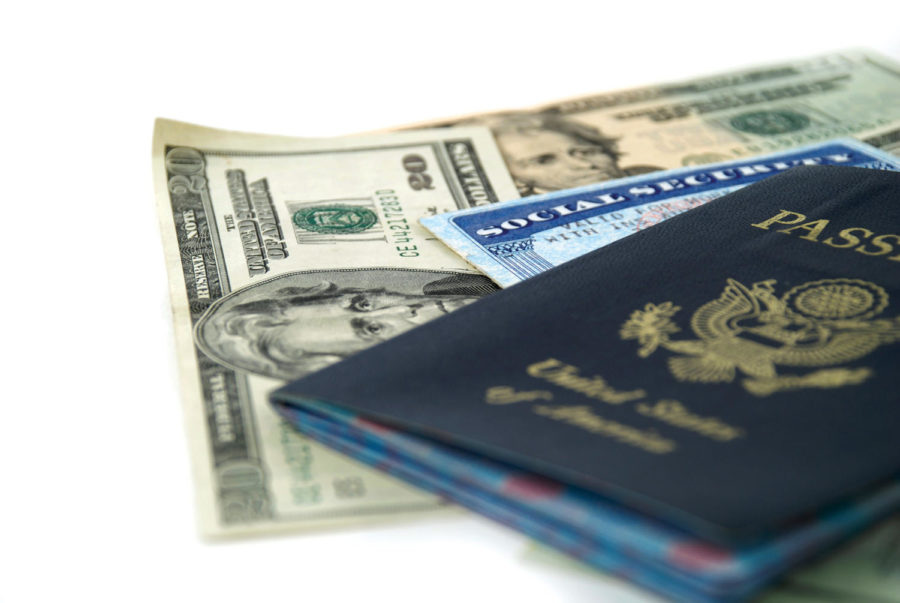Clarke: Immigration reform would improve economy
This immigration reform bill could be what President Barack Obama needs to get the economy up and going again.
April 21, 2013
“It is a legacy item for [President Barack Obama],” said David Axelrod, former top advisor to Obama, about the proposed immigration reform bill.
“Legacy” is right. However, this bill the Gang of 8 is proposing does not put immigrants on a smooth path to citizenship. If Congress would pass a bill with more liberal reform, there will likely be a boost in economic output and a drop in unemployment rates, but their current proposal is much too conservative. Marco Rubio, charismatic GOP leader (R-Fla.), even said, “[This bill] will make it harder, longer and more expensive for the millions of immigrants living illegally in America to achieve legal status.”
In this column I will discuss some of the things the Gang of 8 should implement into the immigration reform bill to improve the U.S. economy.
One common argument against immigration reform is, “These immigrants are taking U.S. jobs!”
However, a study done by Giovanni Peri confirms a different outcome. His research revealed that long-term effects of increased immigration are positive, showing that jobs many Americans found undesirable based on their educational background were taken by low-skilled workers who had immigrated from another country. Furthermore, Peri’s study found there was an approximate increase of $5,100 in the United States per year in average income for his control group.
This seems to defy logic, but Peri explained, “As young immigrants with low schooling levels take manually intensive construction jobs, the construction companies that employ them have opportunities to expand. This increases the demand for construction supervisors, coordinators, designers and so on.” This expansion of jobs in the private sector is not exclusive to the construction industry.
Those arguing against immigration reform based on the idea that the U.S. government should first take care of its own citizens do not have a strong argument. The numbers show not only a decrease in unemployment rates but also an increase in average income per worker, and job opportunities for skilled positions requiring education are in higher demand because companies are expanding and more positions are opening up.
Furthermore, keeping immigrants out of the United States is costly, taxing citizens to enforce border security.
Since 1992, the United States has increased spending on border security by increasing the U.S. border patrol budget by 714 percent (from $326 million to $2.7 billion).
It is ironic the U.S. government spends billions of dollars to keep immigrants out when they could actually be gaining money by allowing them to come in. This is because in the labor market, employers who hire unauthorized workers for lower wages cause other employers to follow suit in order to compete.
If these illegal immigrants were given citizenship and the full rights of workers, there would be a dramatic increase in production and economic output. As Raul Hinojosa-Ojeda put it, “Higher wages translate into more tax revenue and increased consumer purchasing power, which benefits the public treasury and the U.S. economy as a whole.”
However, there are many flaws in the Gang of 8’s proposal.
The proposal for more strict border security will not help the economy, because it does not allow for eager, hard-working immigrants to seek a better life for their family in the United States. Thus, expanding tax revenue and consumer purchasing, which would also improve business, who is selling their products to this broad-new market.
We tend to forget immigrants are not just workers, but taxpayers and consumers as well.
It is amazing how economists who researched how immigration reform affected the economy in the 1980s and 1990s found that the economy improved as a result of more immigrants, because the Immigration Reform and Control Act of 1986 allowed for 3 million new citizens. The Immigration Reform and Control Act also enacted stricter border control and made hiring illegal immigrants a crime.
If the Gang of 8 would enact more liberal legislation, allowing for an easier path to citizenship and open borders, the economy would most certainly improve. However, they are not making it much easier for illegal immigrants currently in the United States to become citizens and are tightening down on border security.
In conclusion, giving citizenship to current illegal immigrants and granting citizenship to new immigrants who pass a criminal background check, would greatly increase economic growth in the United States.
The historical evidence is there: The Immigration Reform and Control Act raised worker’s wages, increased consumption, created more jobs and increased tax revenue, resulting in an improved economy in many aspects.
This immigration reform bill could be what Obama needs to get the economy up and going again.
Connor Clarke is a sophomore in history from Sherwood, Ore.







